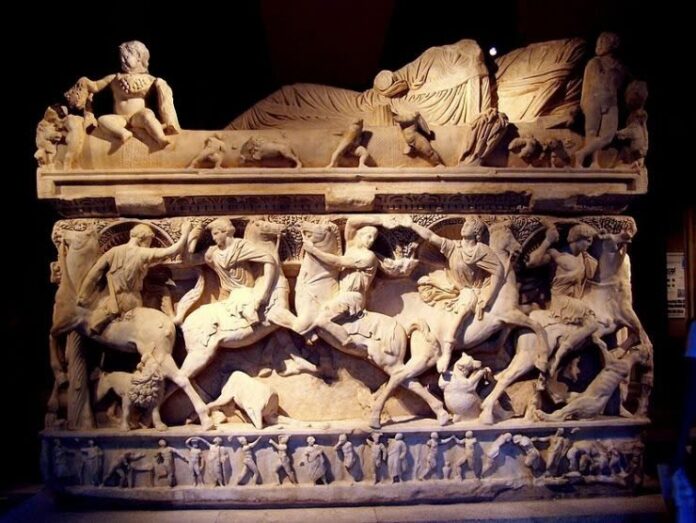Ancient Marvel Restored: The World’s Heaviest Sarcophagus Reclaims Its Eros Head
A Monumental Discovery

The Sidamara Sarcophagus, a colossal 32-ton marble masterpiece from the 3rd century AD, has long been celebrated as one of the largest and heaviest sarcophagi of the ancient world. Discovered in 1900 in the village of Ambar (formerly Sidamara) near Konya, Turkey, this Roman-era artifact was brought to Istanbul by the renowned Ottoman archaeologist Osman Hamdi Bey.
The Missing Piece
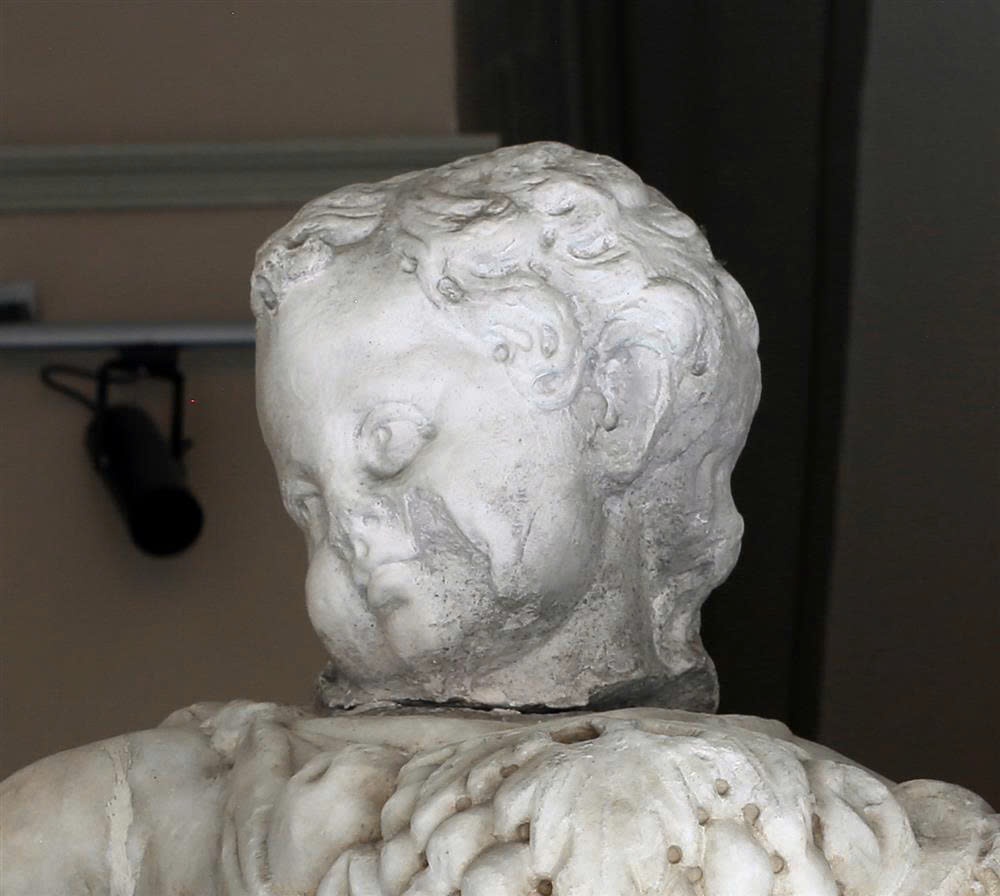
For 140 years, the sarcophagus was incomplete, missing a crucial element – the Eros Head relief. This piece had been separated from the main structure and taken to London in 1882 by British Military Consul General Charles Wilson. In 1933, it was donated to the Victoria & Albert Museum by Wilson’s daughter.
A Tale of Cooperation and Perseverance
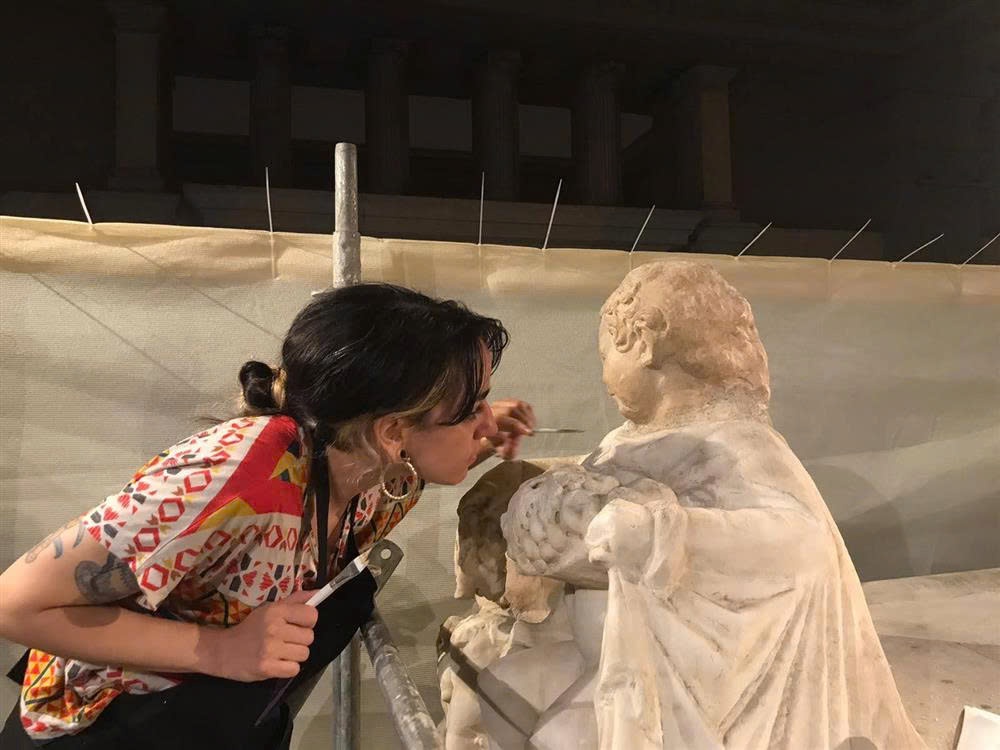
Through the collaborative efforts of the Turkish Ministry of Culture and Tourism, the Ministry of Foreign Affairs, Turkish Airlines, and the Victoria & Albert Museum in London, the Eros Head was finally returned to Turkey on June 10, 2024. Expert restorers from both the Istanbul Archaeological Museums and the Victoria & Albert Museum worked together to reunite the piece with its original home.
The Sarcophagus in Detail
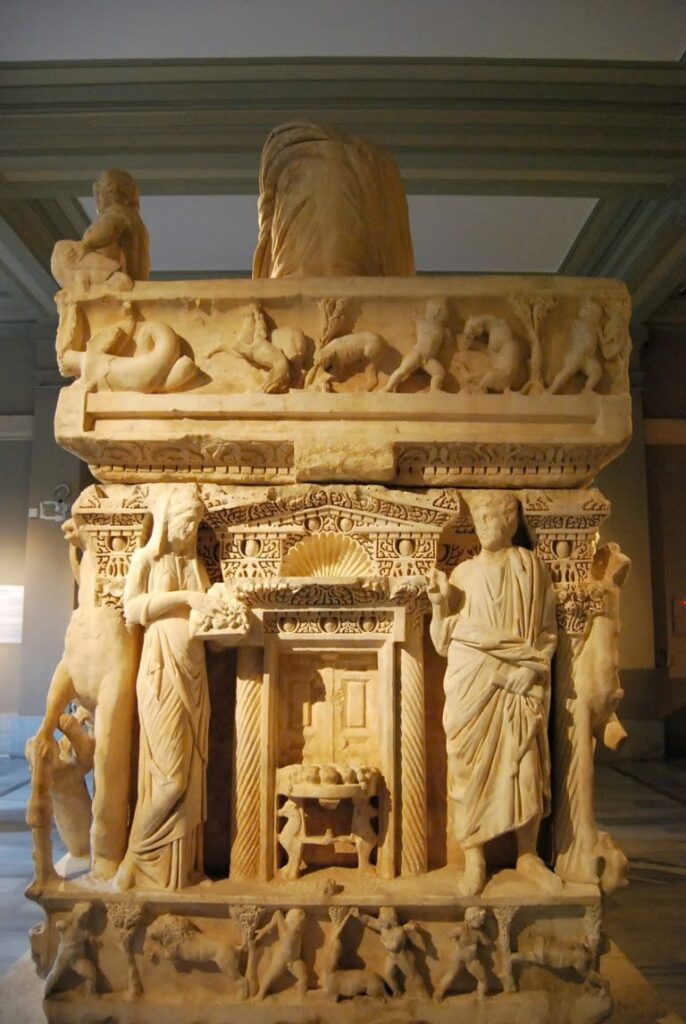
Standing at 313 cm tall, 381 cm long, and 200 cm wide, the Sidamara Sarcophagus is a marvel of ancient craftsmanship. Its intricately carved reliefs depict various scenes:
- A philosopher flanked by figures representing Artemis and Demeter
- The Dioscuri holding horse bridles
- Hunting scenes
- Figures approaching a tomb door
- A frieze featuring puttos, Eros battling predators, and chariot races
A New Chapter
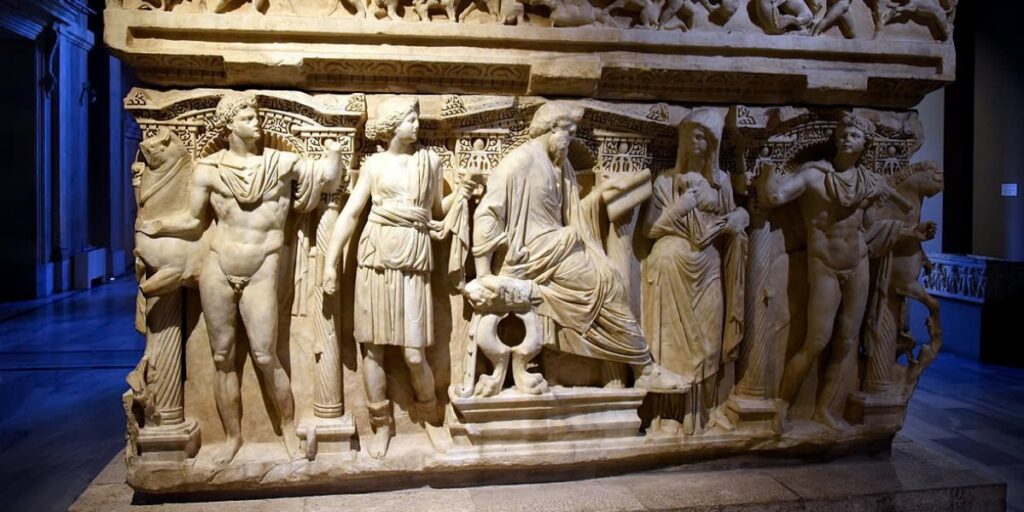
Today, visitors to the Istanbul Archeology Museum can witness this magnificent artifact in its complete form, with the Eros Head relief finally restored to its rightful place. This reunion marks a significant moment in archaeological preservation and international cooperation, bringing a piece of ancient history back to life after nearly a century and a half apart.
